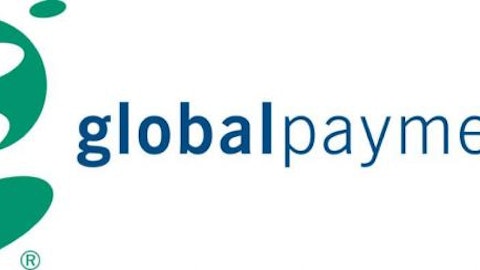Joan Solotar
So taking the reverse, in the US, we are obviously big consumers of energy and a drop has a positive impact on consumers, then how much of a benefit to our economy do you think that is?
Byron Wien
I think it is a big benefit because everybody has a car in America, most families have two. The average family drives 15,000 miles a year, uses a thousand gallons of gasoline, peak to trough gasoline is a down about a dollar a gallon so the average family with a median income of roughly $50,000, the average family has got another $1,000 tax-free in its pockets and it is very likely. So those families are very likely to spend it. So I think it is going to an important plus and it will be an important plus for industry too. Energy is an important component of manufacturing, and of agriculture, and of everything else and with it down in price, that should help profitability of corporations across the board.
Joan Solotar
And you mentioned the marginal demand clearly going to rise from emerging markets, how are you factoring that into your medium to long-term outlook for oil?
Byron Wien
I think the price of oil is going up. Five years from now, I am convinced that it will be well above the current level. It may not be 100 but above it will be above 70 and I think that could happen much sooner than that. So my view is that within three years, it will be 70 because of emerging market demand and I suggested in the 8th Surprise that it could occur this year. That would be a big surprise however.
Joan Solotar
Yeah. With all the liquidity that is being pumped into global economies, are you concerned at all about inflation?
Byron Wien
Well usually the questions I had been getting emails on is on deflation. I am not concerned about inflation. With oil down here, with agricultural commodities down with almost every parameter down and as I have said in the past, inflation is really a function of wages and house prices. House prices are going up 5%, wages are going up 2.5% and the commodities are going down. So, my view is, inflation may be a problem several years in the future but not a problem now.
Turning it around, in terms of deflation in Europe where they did report some deflation – the price declines. I think Europe will show very little inflation but I don’t think Europe is going to be in deflationary environment. Particularly because I think because the price of oil is near a point where it will be bottoming. I don’t think oil is going back to $10/barrel. I think it is going to bottom in the $40s.
Joan Solotar
And how are you thinking about flows into US market? So if you have Europe going into more of a recession, that bond rates are incredibly low, stock markets there does not look to be a bargain relative to US, is that part of the thesis of a higher US market?
Byron Wien
Yes, the US is doing better than Europe, there is no question about it. It is really better than Japan. And the US market is the most transparent, the most highly-regulated market so many investors see it as the safest market. It is also of course the biggest market. So I still think you are going to see capital flows into the US.
But there is a final factor that I think is even more important and that is innovation. The US is still the cradle of innovation for the world, and fortunes in the stock market are made out of innovation — In technology, in biotech, in social network technology — most of those innovations are coming from the United States. So if you think that an economic growth plus innovation are the heartbeat in making money in the equity market, the US really is in a terrific position so I think we are going to see more overseas flows into the US as a result of those factors.





